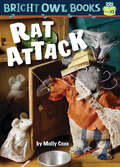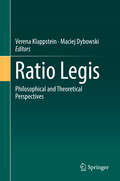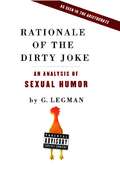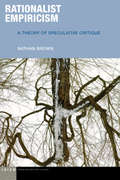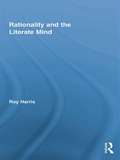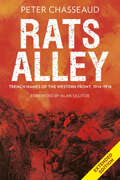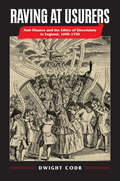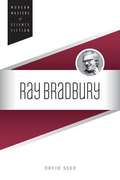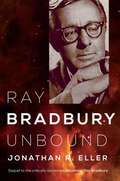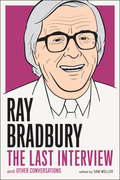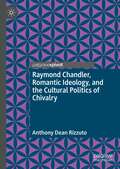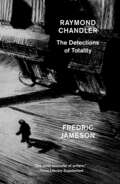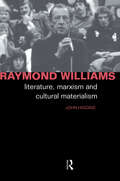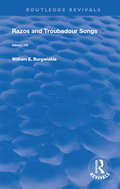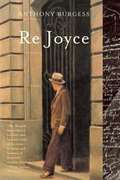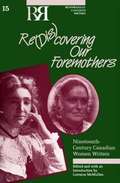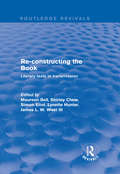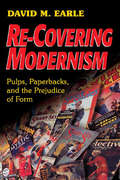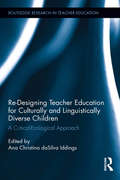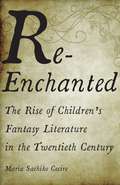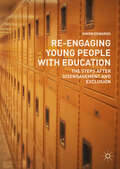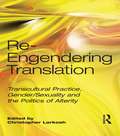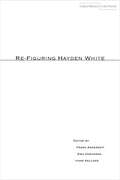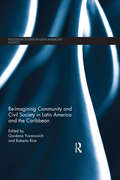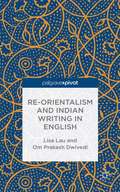- Table View
- List View
Rat Attack (Bright Owl Books)
by Molly CoxeDiscover Bright Owl Books! This super simple beginning readers series, created by best-selling Step into Reading author and illustrator Molly Coxe, features vowel sounds – basic building blocks of reading – and only around 100 words in each book. With a note to parents and teachers at the beginning and story starters at the end, these books give kids the perfect start on educational success.Gram is making jam. Can she keep it safe from all the rat attacks? This fun photographic easy-to-read story features the short &“a&” vowel sound.
Ratio Legis: Philosophical And Theoretical Perspectives
by Verena Klappstein Maciej DybowskiThe book is dedicated to the theoretical problems concerning ratio legis. In the contexts of legal interpretation and legal reasoning, the two most important intellectual tools employed by lawyers, ratio legis would seem to offer an extremely powerful argument. Declaring the ratio legis of a statute can lead to a u-turn argumentation throughout the lifespan of the statute itself – in parliament, or in practice during court sessions, when it is tested against the constitution.Though the ratio legis argument is widely used, much about it warrants further investigation. On the general philosophical map there are many overlapping areas that concern different approaches to human rationality and to the problems of practical reasoning. Particular problems with ratio legis arise in connection with different perspectives on legal philosophy and theory, especially in terms of the methods that lawyers use for legal interpretation and argumentation. These problems can be further subdivided into particular aspects of activities undertaken by lawyers and officials who use the ratio legis in their work, and the underlying theories. In short, this book examines what ratio legis is, what it could be, and its practical implications.
Rationale of the Dirty Joke
by G. LegmanWhy do people tell dirty jokes? And what is it about a joke's dirtiness that makes it funny? G. Legman was perhaps the foremost scholar of the dirty joke, and as legions of humor writers and comedians know, his Rationale of the Dirty Joke remains the most exhaustive and authoritative study of the subject. More than two thousand jokes and folktales are presented, covering such topics as The Female Fool, The Fortunate Fart, Mutual Mismatching, and The Sex Machine. These folk texts are authentically transcribed in their innocent and sometimes violent entirety. Legman studies each for its historical and socioanalytic significance, revealing what these jokes mean to the people who tell them and to the people who listen and laugh. Here -- back in print -- is the definitive text for comedians and humor writers, Freudian scholars and late night television enthusiasts. Rationale of the Dirty Joke will amuse you, offend you, challenge you, and disgust you, all while demonstrating the intelligence and hilarity of the dirty joke.
Rationalist Empiricism: A Theory of Speculative Critique (Idiom: Inventing Writing Theory)
by Nathan BrownTwenty-first-century philosophy has been drawn into a false opposition between speculation and critique. Nathan Brown shows that the key to overcoming this antinomy is a re-engagement with the relation between rationalism and empiricism. If Kant’s transcendental philosophy attempted to displace the opposing priorities of those orientations, any speculative critique of Kant will have to re-open and consider anew the conflict and complementarity of reason and experience. Rationalist Empiricism shows that the capacity of reason and experience to extend and yet delimit each other has always been at the core of philosophy and science. Coordinating their discrepant powers, Brown argues, is what enables speculation to move forward in concert with critique.Sweeping across ancient, modern, and contemporary philosophy, as well as political theory, science, and art, Brown engages with such major thinkers as Plato, Descartes, Hume, Hegel, Marx, Heidegger, Bachelard, Althusser, Badiou, and Meillassoux. He also shows how the concepts he develops illuminate recent projects in the science of measurement and experimental digital photography. With conceptual originality and argumentative precision, Rationalist Empiricism reconfigures the history and the future of philosophy, politics, and aesthetics.
Rationality and the Literate Mind (Routledge Advances in Communication and Linguistic Theory)
by Roy HarrisThis book re-examines the old debate about the relationship between rationality and literacy. Does writing "restructure consciousness?" Do preliterate societies have a different "mind-set" from literate societies? Is reason "built in" to the way we think? How is literacy related to numeracy? Is the "logical form" that Western philosophers recognize anything more than an extrapolation from the structure of the written sentence? Is logic, as developed formally in Western education, intrinsically beyond the reach of the preliterate mind? What light, if any, do the findings of contemporary neuroscience throw on such issues? Roy Harris challenges the received mainstream opinion that reason is an intrinsic property of the human mind, and argues that the whole Western conception of rational thought, from Classical Greece down to modern symbolic logic, is a by-product of the way literacy developed in European cultures.
Rats Alley: Trench Names of the Western Front, 1914–1918
by Alan Sillitoe Peter ChasseaudWhen first published in 2006, Rats Alley was a ground-breaking piece of research, the first-ever study of trench names of the Western Front. Now, in this fully updated and revised second edition, the gazetteer has been extended to well over 20,000 trench names, complete with map references – in itself an essential tool for any First World War researcher.However, combined with the finely considered history and analysis of trench naming during the First World War, this is an edition that no military history enthusiast should be without. Discover when, how and why British trenches were first named and follow the names’ fascinating development throughout the First World War, alongside details of French and German trench-naming practices.Looked at from both contemporary and modern points of view, the names reveal the full horror of trench warfare and throw an extraordinary sidelight on the cultural life of the period, and the landscape and battles of the Western Front. Names such as Lovers Lane, Idiot Corner, Cyanide Trench, Crazy Redoubt, Doleful Post, Furies Trench, Peril Avenue, Lunatic Sap and Gangrene Alley can be placed in context.With useful information on where original trench maps are held, and how to obtain copies, Rats Alley is a vital volume for both military and family historians.
Raving at Usurers: Anti-Finance and the Ethics of Uncertainty in England, 1690-1750
by Dwight CodrIn Raving at Usurers, Dwight Codr explores the complex intersection of religion, economics, ethics, and literature in late seventeenth- and eighteenth-century England. Codr offers an alternative to the orthodox story of secular economic modernity's emergence in this key time and place, locating in early modern anti-usury literature an "ethic of uncertainty" that viewed economic transactions as ethical to the extent that their outcomes were uncertain. Codr's development of an "anti-financial" reading practice reveals that the financial revolution might be said to have grown out of--rather than in spite of--early modern anti-usury and Protestant ethics. Beginning with the reconstruction of a major controversy provoked by the delivery of a sermon against usury in the financial heart of London, Codr goes on to show not only how the ethic at the core of the discourse surrounding usury in the eighteenth century was culturally mediated but also how that ethic may be used as a lens to better understand major works of eighteenth-century literature. Codr offers radically new perspectives on Daniel Defoe's Robinson Crusoe and Henry Fielding's Tom Jones, examining how these novels reacted to emergent financial ways of knowing and meaning as well as how the texts formally bear out the possibility of a truly open and uncertain future. By reading the eighteenth century in terms of risk rather than certainty, Raving at Usurers offers a reassessment of what has been called the financial revolution in England and provides a revisionist account of the intimate connection between risk, ethics, and economics in the period.
Ray Bradbury (Modern Masters of Science Fiction)
by David SeedAs much as any individual, Ray Bradbury brought science fiction's ideas into the mainstream. Yet he transcended the genre in both form and popularity, using its trappings to explore timely social concerns and the kaleidoscope of human experience while in the process becoming one of America's most beloved authors. David Seed follows Bradbury's long career from the early short story masterpieces through his work in a wide variety of broadcast and film genres to the influential cultural commentary he spread via essays, speeches, and interviews. Mining Bradbury's classics and hard-to-find archival, literary, and cultural materials, Seed analyzes how the author's views on technology, authoritarianism, and censorship affected his art; how his Midwest of dream and dread brought his work to life; and the ways film and television influenced his creative process and visually-oriented prose style. The result is a passionate statement on Bradbury's status as an essential literary writer deserving of a place in the cultural history of his time.
Ray Bradbury Unbound
by Jonathan R. EllerIn Ray Bradbury Unbound, Jonathan R. Eller continues the story begun in his acclaimed Becoming Ray Bradbury, following the beloved author's evolution from a short story master to a multi-media creative force and outspoken visionary. At the height of his powers as a poetic prose stylist, Bradbury shifted his creative attention to film and television, where new successes gave him an enduring platform as a compelling cultural commentator. His passionate advocacy validated the U.S. space program's mission, extending his pivotal role as a chronicler of human values in an age of technological wonders. Informed by many years of interviews with Bradbury as well as an unprecedented access to personal papers and private collections, Ray Bradbury Unbound provides the definitive portrait of how a legendary American author helped shape his times.
Ray Bradbury: The Last Interview
by Ray Bradbury Sam WellerRay Bradbury was one of our most influential sci-fi writers; the visionary author of the classic Fahrenheit 451 (Granada, 1954). But he also lived a fascinating life outside the parameters of sci-fi, and was a masterful raconteur of his own story, as he reveals in his wide-ranging, in-depth final interview with his acclaimed biographer Sam Weller. Bradbury constantly twists the elements of his life into a discussion of the influences and creative processes behind his literary form.
Raymond Chandler, Romantic Ideology, and the Cultural Politics of Chivalry
by Anthony Dean RizzutoRaymond Chandler, Romantic Ideology, and the Cultural Politics of Chivalry responds to the general consensus that Philip Marlowe represents a chivalric knight out of romance. The book argues that this commonplace reading requires a stunningly rosy rewriting of Marlowe, knighthood, chivalry, and romance. The book offers a history of the cultural politics of chivalry from the Middle Ages through British Romanticism to the modern United States, exposing the elitism, violent masculinism, racism, and ethno-national othering harbored within. Rizzuto also considers the survival of the chivalric ideology after World War I, and argues that the narrative of the Great War destroying chivalry rewrites the ghastly history of warfare. Touching on Chandler throughout these cultural histories, the book then directly confronts the question of knighthood and romance in the Marlowe novels. Rizzuto identifies an explicit rejection of romance in the service of hardboiled gender, class, and genre norms, including a seldom-remarked pattern of violence against women and sexual assault. The volume concludes by offering some ideas about Chandler’s motivations and the reception of the Marlowe novels.
Raymond Chandler: The Detections of Totality
by Fredric JamesonThe master of literary theory takes on the master of the detective novelRaymond Chandler, a dazzling stylist and portrayer of American life, holds a unique place in literary history, straddling both pulp fiction and modernism. With The Big Sleep, published in 1939, he left an indelible imprint on the detective novel. Fredric Jameson offers an interpretation of Chandler's work that reconstructs both the context in which it was written and the social world or totality it projects. Chandler's invariable setting, Los Angeles, appears both as a microcosm of the United States and a prefiguration of its future: a megalopolis uniquely distributed by an unpromising nature into a variety of distinct neighborhoods and private worlds. But this essentially urban and spatial work seems also to be drawn towards a vacuum, an absence that is nothing other than death. With Chandler, the thriller genre becomes metaphysical.From the Hardcover edition.
Raymond Williams: Literature, Marxism and Cultural Materialism (Critics of the Twentieth Century)
by John HigginsRaymond Williams' prolific output is increasingly recognised as the most influential body of work on literary and cultural studies in the past fifty years. This book provides the most comprehensive study to date of the theoretical and historical context of Williams' thinking on literature, politics and culture. John Higgins traces: * Williams' intellectual development * the related growth of a New Left cultural politics * the origins of the theory and practice of cultural materialism. Raymond Williams is an astonishing achievement and will challenge many received ideas about Williams' work.
Razos and Troubadour Songs (Routledge Revivals)
by William E. BurgwinkleOriginally published in 1990, this book contains the full text and translation of razos and troubadour songs. The coupling of the razos and songs in this edition is based on the conviction that though the lyrics should first be read on their own, it is highly instructive to read the two together, as the razo authors intended. This allows the reader to attempt to read as a thirteenth-century contemporary might have.
Re Joyce
by Anthony BurgessArguing that "the appearance of difficulty is part of Joyce's big joke," Burgess provides a readable, accessible guide to the writings of James Joyce.
Re(dis)covering Our Foremothers: Nineteenth-century Canadian Women's Writers
by Lorraine McmullenThe modern literary searchlight has flushed out Canada's long neglected nineteenth century female writers. New critical approaches are advocated and others are encouraged to take on the difficulties - and rewards of research into the lives of our foremothers.
Re-Constructing the Book: Literary Texts in Transmission
by Simon Eliot Shirley Chew Maureen BellThis title was first published in 2001. Literary critics, textual editors and bibliographers, and historians of publishing have hitherto tended to publish their research as if in separate fields of enquiry. The purpose of this volume is to bring together contributions from these fields in a dialogue rooted in the transmission of texts. Arranged chronologically, so as to allow the use of individual sections relevant to period literature courses, the book offers students and teachers a set of essays designed to reflect these approaches and to signal their potential for fruitful integration. Some of the essays answer the demand "Show me what literary critics (or textual editor; or book historians) do and how they do it", and stand as examples of the different concerns, methodologies and strategies employed. Others draw attention to the potential of the approaches in combination.
Re-Covering Modernism: Pulps, Paperbacks, and the Prejudice of Form
by David M EarleIn the first half of the twentieth century, modernist works appeared not only in obscure little magazines and books published by tiny exclusive presses but also in literary reprint magazines of the 1920s, tawdry pulp magazines of the 1930s, and lurid paperbacks of the 1940s. In his nuanced exploration of the publishing and marketing of modernist works, David M. Earle questions how and why modernist literature came to be viewed as the exclusive purview of a cultural elite given its availability in such popular forums. As he examines sensational and popular manifestations of modernism, as well as their reception by critics and readers, Earle provides a methodology for reconciling formerly separate or contradictory materialist, cultural, visual, and modernist approaches to avant-garde literature. Central to Earle's innovative approach is his consideration of the physical aspects of the books and magazines - covers, dust wrappers, illustrations, cost - which become texts in their own right. Richly illustrated and accessibly written, Earle's study shows that modernism emerged in a publishing ecosystem that was both richer and more complex than has been previously documented.
Re-Designing Teacher Education for Culturally and Linguistically Diverse Students: A Critical-Ecological Approach (Routledge Research in Teacher Education)
by Ana Christina Da Silva IddingsThrough a critical-ecological lens, this book examines how to prepare preservice teachers to be resourceful and responsive practitioners in addressing the intellectual needs of children often labeled as "culturally and linguistically diverse." It explores a comprehensive re-design of a teacher education program grounded in research on the complex factors that affect the teaching and learning of linguistically and culturally diverse children. Re-Designing Teacher Education for Culturally and Linguistically Diverse Students challenges hegemonic cultural and linguistic norms, quantitative and static views of "resources," the impact of U.S. education policy, and the limited attention to the agency, identities, and strategic actions of diverse students and their families.
Re-Enchanted: The Rise of Children's Fantasy Literature in the Twentieth Century
by Maria Sachiko CecireFrom The Hobbit to Harry Potter, how fantasy harnesses the cultural power of magic, medievalism, and childhood to re-enchant the modern world Why are so many people drawn to fantasy set in medieval, British-looking lands? This question has immediate significance for millions around the world: from fans of Lord of the Rings, Narnia, Harry Potter, and Game of Thrones to those who avoid fantasy because of the racist, sexist, and escapist tendencies they have found there. Drawing on the history and power of children&’s fantasy literature, Re-Enchanted argues that magic, medievalism, and childhood hold the paradoxical ability to re-enchant modern life.Focusing on works by authors such as J. R. R. Tolkien, C. S. Lewis, Susan Cooper, Philip Pullman, J. K. Rowling, and Nnedi Okorafor, Re-Enchanted uncovers a new genealogy for medievalist fantasy—one that reveals the genre to be as important to the history of English studies and literary modernism as it is to shaping beliefs across geographies and generations. Maria Sachiko Cecire follows children&’s fantasy as it transforms over the twentieth and twenty-first centuries—including the rise of diverse counternarratives and fantasy&’s move into &“high-brow&” literary fiction. Grounded in a combination of archival scholarship and literary and cultural analysis, Re-Enchanted argues that medievalist fantasy has become a psychologized landscape for contemporary explorations of what it means to grow up, live well, and belong. The influential &“Oxford School&” of children&’s fantasy connects to key issues throughout this book, from the legacies of empire and racial exclusion in children&’s literature to what Christmas magic tells us about the roles of childhood and enchantment in Anglo-American culture.Re-Enchanted engages with critical debates around what constitutes high and low culture during moments of crisis in the humanities, political and affective uses of childhood and the mythological past, the anxieties of modernity, and the social impact of racially charged origin stories.
Re-Engaging Young People with Education: The Steps after Disengagement and Exclusion
by Simon EdwardsThis book examines how young people can be re-engaged with schooling and their own learning beyond the school gates. Despite attempts by successive UK governments to promote engagement with education, there has been a substantial increase in formal and informal exclusions from secondary schools, particularly of underperforming students who come from low income families. The book builds on an ethnographic study carried out in a youth centre based on a secondary school site, exploring the social and cultural worlds of fourteen students as they complete a GCSE teamwork assessment. Analysing the ‘translation’ process of the students as they relocate their understanding of teamwork into the language of assessment, the author posits that student identity is a holistic individual project, where knowledge is produced within the conditions for the production of the self-narrative. This volume calls to educators to recognise the importance of relational pedagogy rooted in social practices, rather than individual cognitive performance. It is sure to be of value and interest to students and scholars of exclusion in education and relational pedagogy, as well as practitioners and policy makers.
Re-Engendering Translation: Transcultural Practice, Gender/Sexuality and the Politics of Alterity
by Christopher LarkoshOf interest to scholars in translation studies, gender and sexuality, and comparative literary and cultural studies, this volume re-examines the possibilities for multiple intersections between translation studies and research on sexuality and gender, and in so doing addresses the persistent theoretical gaps in much work on translation and gender to date. The current climate still seems to promote the continuation of identity politics by encouraging conversations that depart from an all too often limited range of essentializing gendered subject positions. A more inclusive approach to the theoretical intersection between translation and gender as proposed by this volume aims to open up the discussion to a wider range of linguistically and culturally informed representations of sexuality and gender, one in which neither of these two theoretical terms, much less the subjects associated with them, is considered secondary or subordinate to the other. This discussion extends not only to questions of linguistic difference as mediated through the act of translation, but also to the challenges of intersubjectivity as negotiated through culture, ‘race’ or ethnicity. The volume also makes a priority of engaging a wide range of cultural and linguistic spaces: Latin America under military dictatorship, numerous points of the African cultural diaspora, and voices from South, Southeast and East Asia. Such perspectives are not included merely as supplemental, ‘minority’ additions to an otherwise metropolitan-centred volume, but instead are integral to the volume’s focus, underscoring its goal of re-engendering translation studies through a politics of alterity that encourages the continued articulation and translation of difference, be it sexual or gendered, cultural or linguistic.
Re-Figuring Hayden White (Cultural Memory in the Present)
by Frank Ankersmit, Ewa Domańska, Hans KellnerProduced in honor of White's eightieth birthday, Re-Figuring Hayden White testifies to the lasting importance of White's innovative work, which firmly reintegrates historical studies with literature and the humanities. The book is a major reconsideration of the historian's contributions and influence by an international group of leading scholars from a variety of disciplines. Individual essays address the key concepts of White's intellectual career, including tropes, narrative, figuralism, and the historical sublime while exploring the place of White's work in the philosophy of history, postmodernism, and ethics. They also discuss his role as historian and teacher and apply his ideas to specific historical events.
Re-Imagining Community and Civil Society in Latin America and the Caribbean (Routledge Studies in Latin American Politics)
by Roberta Rice Gordana YovanovichLatin American and Caribbean communities and civil societies are undergoing a rapid process of transformation. Instead of pervasive social atomization, political apathy, and hollowed-out democracies, which have become the norm in some parts of the world, this region is witnessing an emerging collaboration between community, civil society, and government that is revitalizing democracy. This book argues that a key explanation lies in the powerful and positive relationship between community and civil society that exists in the region. The ideas of community and civil society tend to be studied separately, as analytically distinct concepts however, this volume seeks to explore their potential to work together. A unique contribution of the work is the space for dialogue it creates between the social sciences and the humanities. Many of the studies included in the volume are based on primary fieldwork and place-based case studies. Others relate literature, music and film to important theoretical works, providing a new direction in interdisciplinary studies, and highlighting the role that the arts play in community revival and broader processes of social change. A truly multi-disciplinary book bridging established notions of civil society and community through an authentically interdisciplinary approach to the topic.
Re-Orientalism and Indian Writing in English
by Lisa Lau Om Prakash DwivediAt its most basic, re-Orientalism is defined as forms of Orientalism practiced and manifested by Orientals in representing the Orient. This book looks at the application and discourse of re-Orientalism in contemporary Indian and South Asian writing in English, particularly social realism fiction.
